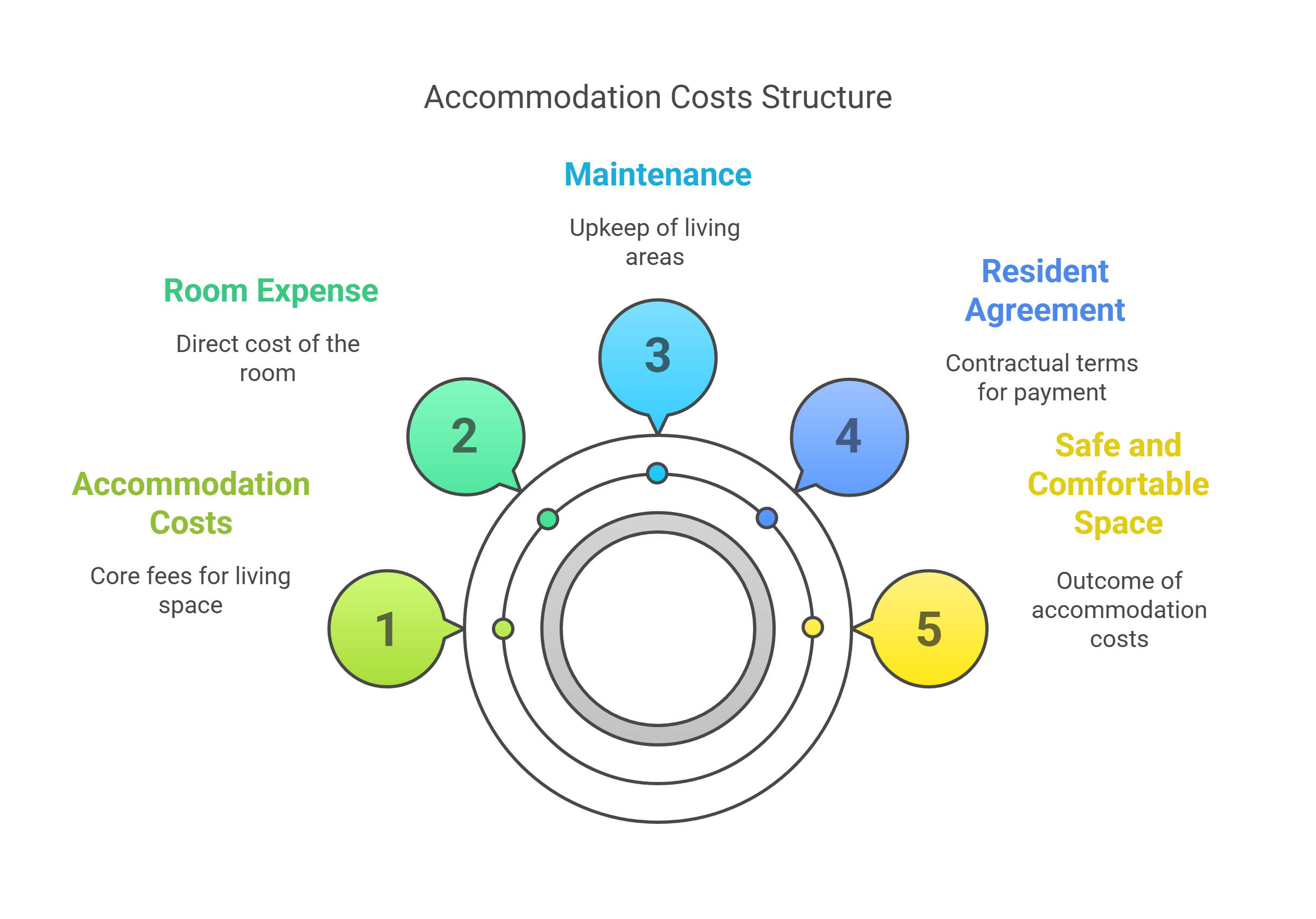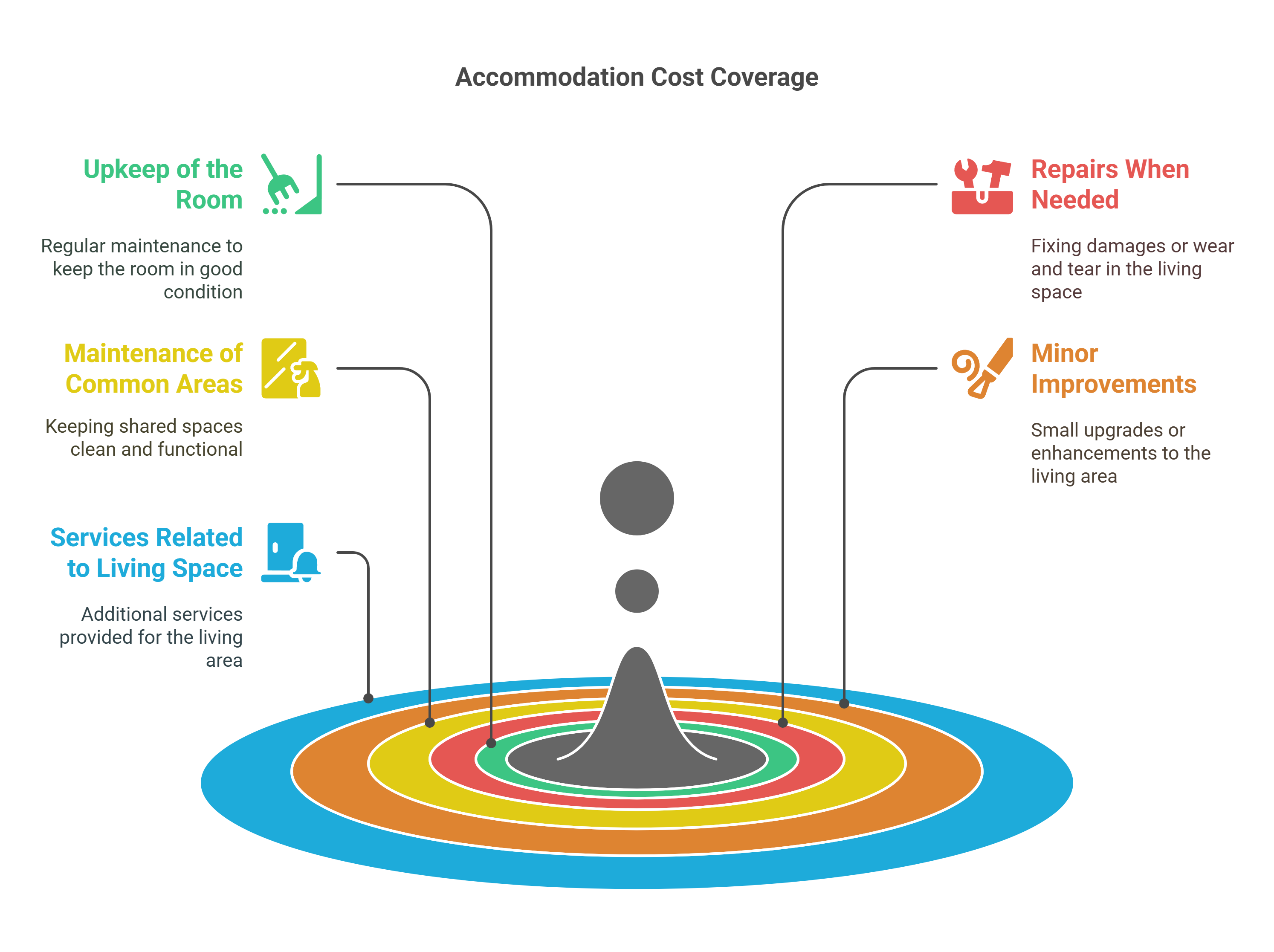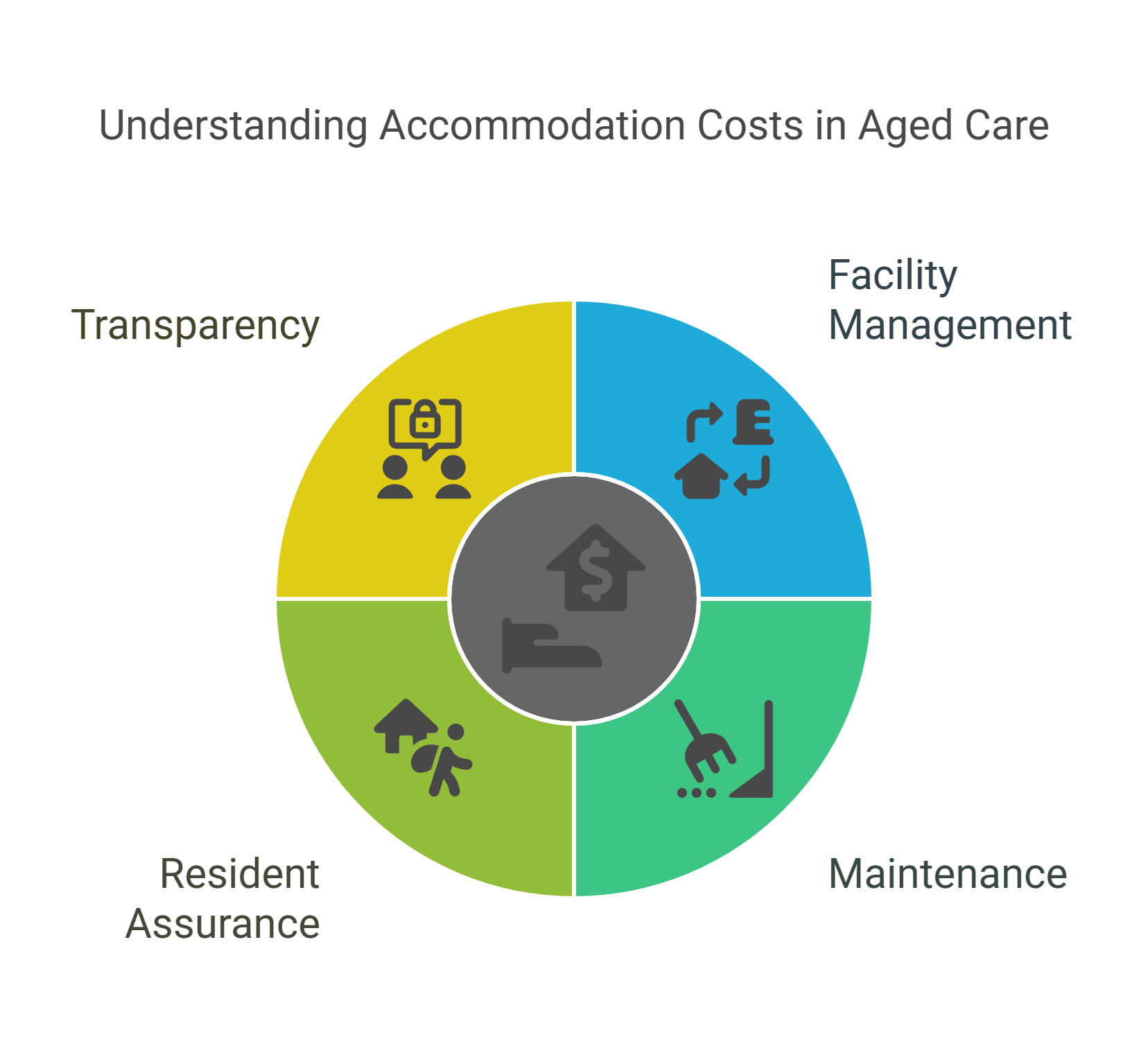What are Accommodation Costs?
Accommodation costs are fees that a resident pays for the living space in a residential aged care facility. These fees are not for the care services but for the space where the resident lives. The payment covers the expense of the room and the maintenance of the living area. The amount is discussed in the resident agreement and is collected on a regular basis. Accommodation costs make it possible for the facility to provide a safe and comfortable space.

How are Accommodation Costs Determined?
The fee is calculated based on different factors. The size and condition of the room, the facilities available, and the general expenses needed to maintain the living area are all taken into account. The rules for setting the cost are stated in the contract that the resident signs. The calculation is clear so that both the resident and the care provider understand the cost. These costs are not one-time fees; they are collected periodically, such as every week or every month.
Who Pays for Accommodation Costs?
The resident is responsible for paying the accommodation costs. In some cases, family members or other funding sources may help with the payments. The resident pays directly using personal funds or approved financial sources. Having clear rules about who pays helps to avoid confusion. The contract explains the payment process in detail so that everyone knows their role.
What Do Accommodation Costs Cover?
Accommodation costs cover many different expenses related to the living area. These costs include the upkeep of the room, repairs when needed, and the maintenance of common areas if the fee includes shared facilities. The fee may also cover the cost of minor improvements and services related to the living space. The contract specifies what is included so that the resident is aware of what the payment will cover. This information helps both the resident and the care provider have a clear understanding of the agreement.

How are the Costs Collected?
The costs are usually collected on a regular schedule. The care provider sets a date, such as once a week or once a month, when the fee is due. The regular collection helps the resident plan their budget. A clear schedule is provided when the resident moves into the facility. The contract also describes what happens if a payment is missed or if there is a need to adjust the amount. All details are discussed so that there are no surprises.
Record Keeping and Transparency
Both the resident and the care provider keep a detailed record of the payments made. This record shows the amount paid, the date of each payment, and what services or costs are covered by each payment. Keeping accurate records helps to avoid disputes and makes it easy to check that everything is in order. If there is any change in the accommodation costs, the care provider explains the change to the resident clearly. The transparency in the process builds trust between the resident and the care provider.
How Does This Affect the Resident?
For the resident, understanding the accommodation costs is important because it is a regular expense that forms part of living in the facility. Paying the fee helps the resident live in a well-kept room with regular maintenance. The cost covers all the basic needs for the living area, which contributes to a safe and comfortable living environment. Clear and fair payment terms help the resident feel secure about their financial arrangements.
Why are Accommodation Costs Important?

Accommodation costs are a key part of the residential aged care system. They help the facility to manage the living space and to maintain it over time. The fee is not only a payment but also a promise that the resident will have a well-maintained place to live. The details of the cost are shared openly so that both the resident and the care provider know what to expect. This openness helps to build a strong relationship based on trust and clear understanding.
Final Thoughts
Accommodation costs are a fundamental part of living in a residential aged care facility. They cover the expenses related to the living space and its upkeep. Both the resident and the care provider benefit from a clear and well-documented system for these payments. The rules about the cost, the regular collection, and the detailed records create a stable financial environment. When the agreement is clear, it helps the resident feel comfortable and supported in their new living space.

.png)
.png)




